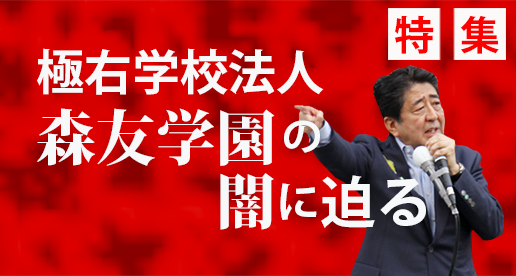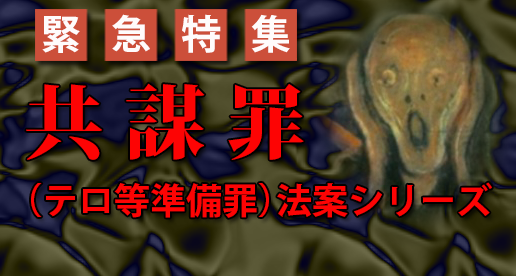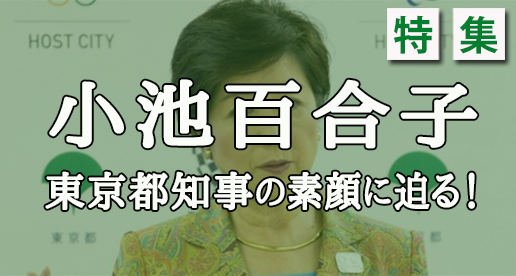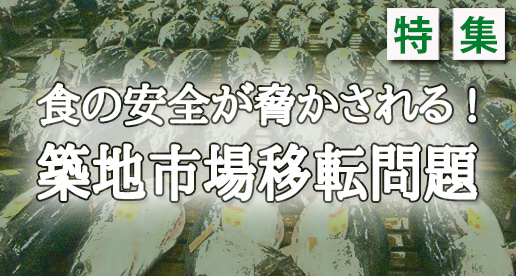要約
時期は定かでないが、来年、再び日本国民に政界再編の機会が訪れる。3年前に民主党が政権を握った時、多くの国民は、そうした改革がすぐに行われると思っていた。しかし、民主党は選挙公約を具体的に実行して改革を実現することができず、結果的に、政権交代を求めた日本国民の要求は満たされないままとなっている。
世論調査に従えば、保守系の自民党が次期総選挙で第一党になり、党首の安倍晋三元首相が日本の次期首相に選ばれることになりそうだ。安倍氏の外交姿勢が保守的であり、日本国民のあいだに中国への懸念が広がりつつあるという状況は、米国政府にとって、日米同盟の健全性維持に死活的な数項目の政策目標を達成する絶好の機会である。
Abstract: On December 16, the Japanese people will once again have an opportunity to reshape their nation’s political landscape. To many, such reform seemed imminent three years ago, when the Democratic Party of Japan (DPJ) swept into power. Yet the DPJ was unable to turn campaign promises into concrete reforms, and as a result, the Japanese public’s desire for political transformation remains unsatisfied. Polls indicate that the conservative LDP will gain a plurality and choose LDP President and former Prime Minister Shinzo Abe as Japan’s next prime minister. Abe’s conservative foreign policy views and the Japanese public’s growing concern over China provide an excellent opportunity for Washington to achieve several policy objectives critical to the health of the U.S.–Japan alliance.
キー・ポイント
①2009年の総選挙によって日本の政権交代は実現したが、民主党は選挙公約を具体的に実行して改革を実現することはできなかった。結果として、政権交代を望む日本国民の声は根強く残っているが、どの政党も国民の信頼をほとんど得ていない。
①The 2009 elections may have changed Japan’s political leadership, but the DPJ was unable to turn campaign promises into concrete reforms. Consequently, the Japanese public’s desire for political transformation persists, and there is little public confidence in any political party.
②日本の次期首相は、景気の低迷、膨れあがる公債残高、少子化、高まりつつある中国と北朝鮮からの安全保障上の脅威、そして薄れゆく国際的影響力など、いくつもの難題に直面する。
②The next Japanese leader faces several daunting challenges: a stagnant economy, staggering public debt, deteriorating demographics, growing security threats from China and North Korea, and fading international influence.
③中国の地政学的な挑発が続いていることを受けて、日本国内にナショナリズムが台頭しつつある、その影響は、日本の政界再編に、またおそらくは来る総選挙にも及ぶ可能性がある。
③China’s continued geopolitical aggression is fueling a rising nationalism throughout Japan, reshaping the Japanese political landscape and, potentially, the coming election.
④世論調査に従えば、保守系の自民党が次期総選挙で第一党になり、党首の安倍晋三元首相が次期首相に選ばれることになりそうだ。
④Polls indicate that the conservative LDP will gain a plurality and choose former Prime Minister Shinzo Abe as Japan’s next prime minister.
⑤安倍氏の外交姿勢が保守的であり、日本国民のあいだに中国への懸念が広がりつつあるという状況は、米国政府にとって、日米同盟の健全性維持に死活的な数項目の政策目標を達成する絶好の機会である。
⑤Abe’s conservative foreign policy views and the Japanese public’s growing concern over China provide an excellent opportunity for Washington to achieve several policy objectives critical to the health of the U.S.-Japan alliance.
本文
3年前、民主党は、50年間続いた自民党政権がもたらした政治的停滞に対する国民の怒りに乗じて政権を奪取した。しかし、その喜びもつかの間だった。民主党は、財政の実情からその非現実的経済公約を放棄せざるを得ず、中国と北朝鮮からの脅威の高まりを受けて、甘い外交姿勢を転換させるに至った。経験不足と不祥事に悩まされ、民主党は自民党と同様に政治的無能をさらけ出し、矢継ぎ早の首相交代という轍を踏んだ。実際、民主党初の首相は1年を経ずに辞任し(後任は15か月しかもたなかった)、有権者は民主党に背を向け、自民党の参議院での復権を許した。
Three years ago, the Democratic Party of Japan (DPJ) swept into power, riding a wave of public anger over the political stagnation created by 50 years of uninterrupted rule by the Liberal Democratic Party (LDP). The euphoria was fleeting, however. Fiscal realities forced the DPJ to abandon its unrealistic economic promises, and growing threats from China and North Korea promoted the party to reverse its naïve foreign policy. Plagued by amateurism and wracked with scandals, the DPJ proved to be as politically inept as the LDP and suffered a similarly rapid turnover of prime ministers. Indeed, within a year, the DPJ’s first prime minister had resigned (the second prime minister lasted only 15 months), and voters turned on the party, returning control of the upper house to the previously discredited LDP.
民主党はその失策によって、次期衆院選で総理大臣のポストと衆議院の過半数を失うことがほぼ確実である。選挙の日程はまだ確定していないが、2013年8月末までには実施されるはずである(訳注:本稿の発行日は11月14日)。野田佳彦首相は、解散日の設定を可能な限り先延ばしにして、瀕死の民主党をどうにか立て直そうとするだろう。自民党は、このような時間稼ぎに対抗して、立法府運営の膠着を武器に選挙の早期実施を余儀なくさせようとするはずである。
As a result of its failed agenda, the DPJ will almost certainly lose the lower house and prime ministership during the next lower-house election. Though the exact date of the election remains uncertain, it must be held before the end of August 2013. Prime Minister Yoshihiko Noda will avoid setting a date as long as possible, hoping to—somehow—resurrect his moribund party. In response to such delay, the LDP will threaten legislative stalemate to force an earlier election.
世論調査に従えば、保守系の自民党が次期総選挙で第一党になり、党首の安倍晋三元首相が日本の次期首相に選ばれるという見通しが強い。安倍氏の外交姿勢が保守的であり、日本国民のあいだに中国への懸念が広がりつつあるという状況は、米国政府にとって、日米同盟の健全性維持に不可欠な数項目の政策目標を達成する絶好の機会である。
Polls indicate that the conservative LDP will gain a plurality and choose LDP President and former Prime Minister Shinzo Abe as Japan’s next prime minister. Abe’s conservative foreign policy views and the Japanese public’s growing concern over China provide an excellent opportunity for Washington to achieve several policy objectives critical to the health of the U.S.–Japan alliance.
米国政府は長きにわたって、日本が自国の防衛により大きな役割を担うこと、さらに海外の安全保障についてもその軍事力・経済力に見合う責任を負担することを求めてきた。日本が防衛費支出を増大させ、集団的自衛権行使を可能にし、海外平和維持活動への部隊派遣に関する法規を緩和し、沖縄における米海兵隊航空基地代替施設の建設を推進することになるとすれば、米国にとって有益なことである。
Washington has long pressed Japan to assume a greater role in its own defense while adopting overseas security responsibilities commensurate with its military and economic strength. It would be beneficial for the United States if Japan were to increase its defense spending, enable collective self-defense, adopt less restrictive rules of engagement for forces involved in overseas peacekeeping operations, and press forward on building a replacement U.S. Marine Corps airbase on Okinawa.
日本の有権者は依然として強力なリーダーシップを求めている
2009年の総選挙によって日本の政権交代は実現したが、民主党は選挙公約を具体的に実行して改革を実現することはできなかった。結果として、政権交代を望む日本国民の声は根強く残っているが、どの政党も国民の信頼をほとんど得ていない。依然として、最も支持を集める候補者は「無所属」である。こうした幻滅から生じた政治的空白に乗じようとしているのが、橋下徹大阪市長の「日本維新の会」である。
Japanese Electorate Still Longing for Leadership
Although the 2009 elections may have changed Japan’s political leadership, the DPJ was unable to turn campaign promises into concrete reforms. Consequently, the Japanese public’s desire for political transformation persists, and there is little public confidence in any political party: The most popular candidate remains “none of the above.” This disenchantment has created a political vacuum that Osaka Mayor Toru Hashimoto is seeking to exploit with his Nippon Ishin no Kai (Japan Restoration Party—JRP).
民主党
野田首相が党首を務める民主党は破滅寸前である。まもなく奈落に真っ逆さまとはつゆ知らず、空中に立つコヨーテ(訳注:漫画のキャラクターWile E. Coyote)のようだ。民主党は存続するだろうが、マスター・プランが大失敗であることが判明して足かせとなるのも、コヨーテと同じである。
尖閣諸島を巡る日中の対立が問題となったのは2010年だが、その頃には、すでに民主党は公約に掲げていた外交および安全保障政策を放棄していた。例えば、民主党はもはや日米同盟を批判することはせず、対中融和、米国抜きの東アジア・コミュニティの創設、そして米海兵隊の普天間飛行場の沖縄県外移設も提唱しなくなっていた。民主党は、対抗すべき自民党の外交政策を事実上受容してしまったのである。
民主党の経済公約も似た運命をたどった。例えば、2009年の選挙戦で民主党は高齢者への年金および医療給付の増額、ならびに4年間の増税回避を公約に掲げたものの、選挙に勝利した後に給付の約束を反故にしたばかりか、野田首相は2011年にならないうちから消費税を5%から10%に倍増することを提案するようになっていた。また、追加徴税分は全額社会保障制度の安定化に充当し、政府部門を拡大する目的には使用しないことを約束した。
不人気の増税法案を推し進めることで、野田氏は民主党政権の墓穴を掘った。川内博史民主党議員が述べたように、「[自民党政権下での]年金問題と社会保障に対する国民の不信と民主党の提案があったから、民主党は政権に就けた。[それが今や]民主党が自民党と化してしまった」のである。
●Democratic Party of Japan.
Like Wile E. Coyote standing in mid-air, blissfully unaware of his impending plummet, Prime Minister Noda is ruling over a party teetering on the brink of disaster. The DPJ will survive, but the party, like Wile E., will be hobbled with its master plan, which has proven to be a colossal failure.
By the time of Japan’s confrontation with China over the Senkaku Islands in 2010, the DPJ had jettisoned the foreign and security policies on which it had campaigned. For instance, the party no longer criticized Japan’s alliance with the United States, nor did it advocate embracing China, creating an East Asian Community without Washington, or moving the U.S. Marine Corps airbase at Futenma off of Okinawa. The DPJ, for all intents and purposes, had embraced the foreign policy of its LDP rival.
The DPJ’s economic promises would meet a similar fate: During the 2009 campaign, for example, the DPJ pledged that it would increase pension and medical benefits for the elderly and avoid any tax increases for four years. Yet after winning the election, the DPJ abandoned its benefits pledge, and by 2011, Prime Minister Noda was proposing to double the consumption tax from 5 percent to 10 percent. He also promised that all of the additional revenue would be devoted to stabilizing the troubled social security system and not to increasing the size of the government.
By pushing the unpopular tax, Noda dug the DPJ’s political grave. As DPJ Diet Member Hiroshi Kawauchi stated, “the public’s distrust of pensions and health care [under the LDP] and our proposals were what brought us to power [but now] the DPJ has turned into the LDP.” Aside from its continued loss of public support, the DPJ is also suffering from defections in its ranks: Over 70 lawmakers have fled the party, citing differences with Noda over raising the consumption tax or resuming operations at the Oi nuclear power plant.
野田首相の驚くべき大胆さと有能さ
野田首相の支持率は急落しているが、皮肉なことに、野田首相が、実際に指導する勇気を持った日本の指導者として例外的な存在であることは明らかである。野田首相は、自民党・民主党の5人の前任者よりはるかに有能だった。
野田首相が2011年3月の地震、津波、そして原発事故という3つの惨事の直後に就任したことを考慮すると、その業績は見事と言わざるを得ない。国民がさらなる原発事故の発生を恐れたため、日本の電気消費量の30%を供給していた原発のすべてを停止することになったのである。
野田首相の政治的手腕もまた予想をはるかに超えていた。例えば、2012年初頭に、日本のメディアは彼の政治的短命を予測したが、野田首相は政敵に打ち勝ち,物議を醸した法案の採決を押し切ることができた。さらに、民主党内部からの激しい抵抗と野党の議事進行妨害に直面しながらも、消費税増税法案を成立させることに成功した。また、日本が以前から約束していた武器輸出原則の緩和を実現し、米国政府を説得して二国間防衛協定を改定して米海兵隊普天間飛行場代替施設建設問題の進展という在沖縄米軍5基地返還の前提条件を切り離すことができた。
Noda: Surprisingly Bold and Effective.
Noda’s plummeting approval rating is ironic since he has proved to be an anomaly: a Japanese leader with the courage to actually lead. He has been far more effective than any of his five predecessors from either major party.
Noda’s accomplishments are even more impressive considering that he assumed office shortly after the March 2011 disaster trifecta of earthquake, tsunami, and nuclear catastrophe. Public fear of additional nuclear disasters led to the shuttering of all Japan’s nuclear reactors, which had supplied 30 percent of the country’s electricity.
Noda also proved to be far more politically adept than expected. In early 2012, for instance, the Japanese media predicted his imminent political demise, yet he was able to outmaneuver his political opponents and push through controversial legislation. Furthermore, despite fierce opposition from within his own party as well as an obstructionist opposition party, Noda won approval for the consumption tax increase. He also implemented Japan’s long-promised relaxation of arms export principles and convinced Washington to alter a bilateral defense agreement by delinking required progress on construction of the Marine Corps’ Futenma Replacement Facility prior to the United States returning five military bases on Okinawa.
不人気なポピュリスト、小沢
日本の政治の未来を語る際に驚くほど言及されない人物が、元民主党代表の実力者、小沢一郎氏である。「壊し屋」の異名を持つ小沢氏は、昔から、自らの当選確率を上げるためには自らが参画した政党や政策を見捨てることも厭わなかった。事実、小沢氏の唯一の一貫したイデオロギーは、その時点で有権者に最も人気がある選択肢であれば、中身がどうあれ頑なに信奉するということである。
しかし、小沢氏の人気も、選挙への影響力とともに、衰弱の一途を辿っている。現時点でもなお49人の国会議員の支持を得ているとはいえ、この取り巻きの多くは次期衆院選で落選すると見られている一年生議員である。そのため、小沢氏は目下資金と支持集めに奔走している。同氏が新たに結党した「国民の生活が第一」は、次の選挙では10議席しか獲得できないかもしれない。
Ozawa: The Unpopular Populist.
One political name that is surprisingly absent from discussion of Japan’s political future is former DPJ leader and kingmaker Ichiro Ozawa. Known as “the destroyer,” Ozawa has a long history of abandoning parties or policies he once championed if doing so increased his electability. In fact, Ozawa’s only consistent ideology has been to believe strongly in whatever is most popular with the voters at the moment.
But Ozawa’s popularity, along with his ability to influence elections, is dwindling. Although he still boasts the support of 49 Diet members, many of these allies are first-term lightweights expected to lose their seats in the coming election. Consequently, Ozawa is now scrambling for money—and relevance. His newly formed People’s Life First Party may end up with only 10 seats after the next election.
自民党
先月の総裁選の結果、自民党は安倍晋三氏を新総裁に選出した。世論調査では、石破茂元防衛大臣、石原伸晃自民党幹事長に次ぐ3位であったため、安倍氏の勝利は驚きを持って迎えられた。第一回投票の結果、安倍氏は、地方支部役員や党員にはるかに高い人気を博す石破氏に次いで二位となった。国会議員のみが投票する決選投票で、安倍氏は派閥政治と人間関係のあやによって勝利を収めた。
石破氏が自民党総裁に選出されていたとしたら、来る総選挙での自民党の勝算は高まっていたかもしれない。安倍氏は国民には依然として非常に不人気である。有権者は、安倍氏が総理在任わずか1年で突然無責任とも取れる辞任の仕方をしたことに、まだ怒っているのだ。実際、2007年の参院選と2010年の衆院選における自民党の惨敗の責任を彼に求める声も大きい。
2012年の総裁選における勝利の後、安倍氏は、尖閣諸島に関して中国に対して毅然とした態度を取ること、米国との同盟を強化すること、そして日本がより大きな安全保障上の責任を引き受けることを宣言した。これらの問題に対する安倍氏の姿勢は、日本国内におけるナショナリズムの広がりと同調するものである。しかし、一部の有権者は、日本の最大の貿易相手国である中国に対して、安倍氏が度を超した対決姿勢を取ることを懸念している。
こうした懸念に道理がないわけではない。安倍氏は、前回の首相任期中、第二次大戦において日本軍がアジア女性を慰安婦として強制連行したことを否定し、また歴史教科書への日本の戦中行動の過小表記を可能とする法案成立を強行したことで、中国および韓国との関係に緊張を招いている。しかし一方で、安倍氏は、前任者の小泉純一郎氏がしたような靖国参拝を行わず、自身の最初の公式訪問先を中国とすることで自制を示している。
2012年の総裁選で勝利を収めた後、安倍氏は前述の懸念を和らげようと、次のように発言している。
「尖閣を巡る中国の様々な動きに対して、我々は、まずは、この尖閣、領海をしっかりと守っていくという意思を示していきたいと思います。その上において、私は6年前に総理に就任した際、最初の訪問国として中国を選びました。それは日中関係が極めて重要であるからです。日本は中国に投資をし、輸出をし、利益を上げています。中国の成長は日本の成長に必要です。同時に、中国も日本の投資によって、雇用を作り、日本から日本しかできないような資本財、半製品を輸入して、それを加工して、輸出をしています。言わば、お互いに切っても切れない関係ですね。そのことを認識しながら、両国は国境を接しています。世界中どこもそうですが、国境を接している国、様々な国益がぶつかる場合がありますね。国益がぶつかっても、今言ったようにお互いがお互いを必要としているという認識、これは戦略的に考えながら、そういう事態をコントロールしていこうと。この考え方に今も変わりはありません」
Liberal Democratic Party.
During last month’s party elections, the LDP selected Shinzo Abe as its new president. Abe was a surprise victor since he had been third in the polls behind former Defense Minister Shigeru Ishiba and LDP Secretary-General Nobuteru Ishihara. Abe came in second in the first round of voting behind Ishiba, who was far more popular among local party officials and members. During the run-off election—in which only Diet members could vote—Abe won due to a combination of factional politics and personal chemistry.
Had the party chosen Ishiba as its president, the LDP might have bolstered its prospects in the forthcoming general election. Abe remains very unpopular with the public; voters remain angry about his abrupt and perceived irresponsible resignation as prime minister after only one year in office Indeed, many blame Abe for the party’s poor showing in both the 2007 upper-house and 2010 lower-house elections.
After his 2012 selection as party president, Abe pledged to stand up to China over the Senkakus, to strengthen the alliance with the United States, and to have Japan assume a larger security role. Abe’s positions on these issues are attuned to a growing Japanese nationalism. However, some voters are concerned that Abe could go too far in pushing confrontation with China, which is Japan’s largest trading partner.
Such fears are hardly irrational: During his tenure as prime minister, Abe strained relations with China and South Korea by denying that during World War II, Asian women were forced into sexual slavery by Japanese imperial forces and by pushing legislation that enabled school textbooks to downplay Japan’s wartime actions. Yet Abe showed restraint by not going to the controversial Yasukuni Shrin[5] as his predecessor, Junichiro Koizumi, had and by making his first official visit to China.
Following his victory in the September 2012 LDP elections, Abe sought to allay such concerns, remarking:
We must show our will to firmly protect our territorial waters and the Senkaku islands in the face of China’s actions. That said, when I took office as prime minister six years ago, I visited China first because the Japan–China relationship is very important. Even if our national interests clash, we should acknowledge that we need each other and control the situation while thinking about things strategically. My stance on this has not changed
日本維新の会
政府の停滞と効率の悪さに対する国民の怒りを追い風に、橋下徹市長率いる日本維新の会が日本の政治システムに揺さぶりをかけている。カリスマ性のある橋下市長は、決断力と、地方行政レベルではあれ、真の改革を遂行する能力を持ち合わせている。赤字財政を克服し、教員の業績要求水準策定にあたって労働組合の抵抗を乗り切るなど、橋下氏の業績は華々しい。国政進出に照準を定めた今、橋下氏は日本の政治体制の抜本的改革を公約している。
橋下氏の政策構想は、多くの点でティー・パーティーに類似している。米国におけるティー・パーティー運動と同じく、橋下氏は既成政党に対する民衆の反感とまでは言えないとしても、民衆の幻滅の波に乗っている。ただ、米国のティー・パーティー運動が非公式組織の下からのつながりを原動力としていたのに対し、橋下氏の場合は、大部分は1人の人間の個人的訴求力に頼って支持を集めるトップダウン方式を取っている。実際、政治評論家は、橋下氏のことを「日本のロス・ペロー」と呼んでいる。
政党が政策やイデオロギーの違いを鮮明にしない日本の澱んだ政治体制を混乱させることで、橋下氏は変革者として歓迎されるかもしれないが、より具体的な外交および内政の問題について詳細な説明を余儀なくされた場合、彼の評判はどのように変わるだろうか?ある政治評論家の言うように、「今は目新しさも手伝って旬の人としてもてはやされているかもしれないが、実際にやらせてみたら、国民はどう反応するだろうか?」
来る選挙に向けてどの程度有力な候補者を立てられるかが、橋下氏にとって大きな試金石となるだろう。自身のアウトサイダーとしてのイメージを損なわないために、自民党や民主党から離反した議員を多数迎えることはできないが、かと言って候補者に選挙資金を自ら賄うように求めている以上、“アウトサイダー”候補者を300人も探すには大変苦労することだろう。
東京から地方への政治的権限の移譲という橋下氏の分権化方針は地元大阪においては人気を博していても、その他の地方で共感を得ているとは言い難い。民主党や自民党に対する支持は低いものの、政府機能を東京から地方に移管することで問題が解決すると考える有権者は少ない。さらに、特に改憲など、橋下氏の政策の中には非現実的と見られるものもある。
Japan Reformation Party.
Driven by public rage against a stagnant and ineffective government, Mayor Horu Hashimoto’s upstart party is rattling Japan’s political system. The charismatic mayor is decisive and capable of implementing genuine change, albeit at the local level. Hashimoto’s record is impressive: As mayor, he reduced deficit-burdened budgets and overcame labor union resistance to impose teacher performance requirements. Now, with his sights set on the national political stage, Hashimoto is promising a radical overhaul of Japan’s political system.
In many respects, Hashimoto’s initiative is akin to a one-man Tea Party. Like the U.S. Tea Party movement, Hashimoto is riding a wave of popular disenchantment, if not disgust, with the established political parties. But whereas the American Tea Party was driven by a bottom-up amalgamation of informal organizations, Hashimoto is offering a top-down plan that is gaining converts that are due, for the most part, to the personal appeal of one man. In fact, pundits have referred to Hashimoto as the “Japanese Ross Perot.”
By disrupting the stagnant Japanese political system—a system in which parties do not provide ideological or policy differences—Hashimoto could be a welcome change, but how will Hashimoto be regarded once he is forced to articulate more detailed foreign and domestic policies? As one pundit opined, “he may be the popular new flavor of the month, but how will people react once they taste it?”
A major test for Hashimoto will be how strong a roster of candidates he can field for the election. He cannot include too many established politicians defecting from the LDP or DPJ, lest he risk his “outsider” image, but he could be hard-pressed to find 300 viable “outsider” candidates, particularly as he is requiring all candidates to provide their own funding.
Hashimoto’s decentralization theme—shifting political power from Tokyo to the prefectures— though popular in Osaka, has not resonated with the rest of the country. Though there is little public support for either the DPJ or the LDP, few voters see problems being remedied by transferring governmental responsibilities to the countryside. Moreover, some of Hashimoto’s proposals—notably, changing the constitution—are seen as unrealistic.
支持の薄れ
2012年中頃の時点では、日本維新の会の支持率が民主党と自民党の両方を凌駕している世論調査もいくつか見られたものの、夏以降の調査の結果は、日本維新の会が近い将来において国政の場で大きな役割を担う能力を備えているかという点に疑念を抱く有権者が増えていることを示唆している。
また、橋下氏と他党から維新の会に合流した国会議員のあいだに摩擦も生じている。自民党から日本維新の会に移った松浪健太衆院議員は「橋下氏の独裁は許されない」として同党の外交および安全保障政策の策定は所属国会議員が主体となって行うべきだと主張したが、これに対し橋下代表は「僕が方針を出す」と発言して同党の政策決定を一手に担う考えを示した。
最近発表された橋下氏の外交方針のいくつかは世論の批判を浴びている。日本人の国民感情と相容れない政策がいくつもあることを考えれば、そのような批判は驚くに値しない。例えば、現在日本が主権を主張する竹島(独島)に関しての韓国との共同管理や、日本が管理する尖閣諸島における領有問題の存在を認めて国際司法裁判所で解決するべきという主張はひどく不人気である。
党内の不和に、物議を醸す橋下氏の姿勢が相まって、日本維新の会の当初の勢いは失速し、支持率は減少に転じている。直近の世論調査によれば、日本維新の会は民主党とほぼ並んでいるが、両党は自民党の後塵を拝す状況となっている。同様に選挙予測も当初の100~130議席から70~100議席に下方修正され、直近では40~70議席に留まっている。
Fading Enthusiasm.
Some mid-year polls had the JRP surging ahead of both the LDP and the DPJ. Since the summer, however, polls have indicated that an increasing number of voters harbor doubts about the JRP’s near-term ability to become a major player on the national stage. Furthermore, there has been friction between Hashimoto and some of the Diet members who defected to the JRP. Kenta Matsunami, who left the LDP to join the JRP, advocated that Diet members should take the lead in setting the party’s foreign and security policies, declaring that Hashimoto’s “dictatorship won’t be tolerated.” Hashimoto fired back that he retained sole control over the party’s platform.
Several of Hashimoto’s recent diplomatic positions have drawn public criticism. Such disapproval, however, is hardly surprising, as several proposals are out of step with popular Japanese sentiment. For example, Hashimoto advocated taking joint control, along with South Korea, of the disputed Dokdo/Takeshima Islands; Japan currently claims sole sovereignty over this territory. Hashimoto’s view regarding the Senkaku Islands is equally unpopular: The mayor has argued that the Japanese-controlled Senkaku Islands should be declared a territorial dispute with China and taken to the International Court of Justice for resolution
As a result of both intra-party friction and Hashimoto’s controversial positions, the party’s initial momentum and popularity first slowed and is now declining slightly. Most recent surveys put the JRP roughly even with the DPJ; however, both parties trail significantly behind the LDP. Similarly, election predictions have fallen dramatically: Initial estimates predicted that the JRP would win 100–130 Diet seats, numbers that were subsequently revised downward, first to 70–100 seats and most recently to only 40–70 seats.
政治の震源地は大阪か北京か?
日本維新の会は衆院選に大きな影響を及ぼすだろうが、はるかに大きな要因となりそうなのは中国の強硬姿勢である。自民党、とりわけ安倍総裁は中国に対して毅然とした態度を取る可能性が高いと有権者に見られているため、日中関係の緊張が高まる状況は、自民党に恩恵をもたらすものと考えられる。したがって、野田首相は総選挙を可能な限り先延ばしして、中国と韓国との対立関係を改善しようとするだろう。
尖閣問題では、橋下氏もメディア露出の機会を奪われ、また外交面での経験不足がさらされた結果、損害を受けている。橋下氏は安倍自民党総裁を凌ぐような強硬姿勢を取れないため、日本国民のナショナリズムが台頭する状況は、橋下氏に不利に働く。また、橋下氏には、より具体的な外交政策を策定するために年長の政治家を助言者として迎えるつもりもないようである。
A Political Tsunami from Osaka…or Beijing?
Although the JRP could have a major impact on Japan’s lower-house election, Chinese assertiveness is likely to be an even greater factor. Specifically, high bilateral Japanese–Chinese tensions could benefit the Liberal Democratic Party, as the electorate regards the LDP, and Abe in particular, as more likely to stand up to Beijing. Therefore, Noda will attempt to delay calling the general election as long as possible, in part to calm Japan’s confrontations with China and South Korea.
The Senkakus dispute has also hurt Hashimoto, as it took media attention away from his campaign and highlighted his lack of foreign policy experience. A growing Japanese nationalism puts Hashimoto at a disadvantage since he cannot “out-Abe Abe.” Nor does Hashimoto appear to be interested in drawing in elder statesmen as advisers to define a more detailed foreign policy.
ナショナリズムの台頭
中国の地政学的な挑発が続いていることを受けて、日本全国にナショナリズムが台頭しつつある。その影響は、日本の政界再編に、またおそらくは来る総選挙にも及ぶ可能性がある。ただし、このような変化はほぼ対中国に限定されており、より広い意味での軍国主義の復活を示すものではないことに注意するべきである。
事実、中国の好戦的な態度は日本を従来の自己満足から目覚めさせ、戦後の極端な平和主義を放棄しようとする機運を有権者のあいだに拡大する契機となっている。こうした変化は、世代交代の産物でもある。戦禍を直接体験し、軍国主義を最初に拒絶した戦中世代が少なくなっているのだ。
結果的に、日本政府は、中国の領土拡張主義に対抗し、軍備を増強しようという機運を強めている。2010年の尖閣事件における中国政府の強硬で傲慢に映る態度を受けて、日本は新たな防衛戦略を採る方向に傾いた。世論調査によれば日本国民の70~80%が中国に対して否定的なイメージを持っていると答えたという。民主党は、政権の座に就いてから、外交および安全保障の分野でより保守的な政策を取り入れており、今や主要政党はすべて米国との強固な同盟関係を支持している。
ナショナリズムの覚醒する過程で、日本の軍事的脆弱性に対する国民の懸念が膨らんでおり、今や有権者は中国に対抗しうる強い指導者を求めている。世論調査によると、回答者の25%が軍備増強を支持しており、2009年の14%、1991年の8%から増加を見せている。防衛費支出の増加や集団自衛権および部隊派遣に関する法規解釈の緩和といった長年の懸案事項についても、大衆の姿勢は受け入れようとする方向に以前より傾いているかもしれない。
しかしながら、こうした改革が実施されたとしても、日本は、同盟国が攻撃を受けた場合に同盟国の防衛に参加できるようになるだけであり、アジア地域のメディアはまくし立てるように警告を発しているが、軍国主義の復活ののろしを意味するものではない。世論の右傾化は、日本国内では前例のない水準であるが、広く認識されているほどには、重大かつ危険なものではない。「ナショナリズム」ということばから大日本帝国の負のイメージが呼び起こされるが、日本は、他国が既に有する標準的ナショナリズムを獲得しているに過ぎず、それも最近中国において広範に見られた暴力的な反日抗議行動に比べれば、はるかに非好戦的なものである。
少数派を除けば、日本を軍国主義化し、米国との関係を絶つことを提唱する政党は国内に存在しない。安倍氏は、むしろ日本の安全保障政策を規定する法規に適度な改変を求めるとともに、引き続き日米同盟を堅持しようとするだろう。安倍氏は好んで中国と対抗しようとする姿勢を見せるが、中国政府と良好な関係を維持する重要性も理解している。
さらに、日本のナショナリズムに関して論じる場合、安倍氏の政治家としての経歴を切り離して考えることが重要である。日本の戦中行動に関する安倍氏の修正主義的発言は実に厄介であり、同氏がそうした発言に基づいて行動したり、首相として再びそのような発言をしたりすれば、不必要に地域の緊張を煽ることなるだろう。日本がアジア太平洋地域で有力な指導的地位を築くためには、断つ必要のある政治的関係もあるだろうが、安倍氏は無神経に乱暴を働くような行動は慎むべきである。
ただ、安倍氏は、前回の首相任期中にはおおむね挑発的行動を慎んだ実績があるので、米国政府としては、不必要に歴史を書き換えることに政治力を費やすことがないよう、非公式に助言するのが賢明だろう。
Rising Nationalism.
China’s continued geopolitical aggression is fueling a rising nationalism throughout Japan, reshaping the Japanese political landscape and, potentially, the coming election. It is important to note, however, that this shift is occurring almost exclusively with regard to China; it does not signal a broader return of Japanese militarism. Indeed, China’s bellicose actions have snapped Japan out of its usual complacency and triggered a greater willingness among voters to abandon the nation’s post-war extreme pacifism. This shift is also the product of generational change, as the wartime generation that knew first-hand the ravages of war and first rejected militarism is passing away.
Consequently, Tokyo is now more willing to confront Chinese expansionism and strengthen its military. Beijing’s assertiveness and perceived arrogance during the 2010 Senkakus incident led Japan to adopt a new defense strategy. Polls show that 70 percent–80 percent of Japanese now have a negative view of China. Since assuming power, the DPJ has adopted more conservative foreign and security policies, and all major parties now support a strong alliance with the United States.
As part of its nationalistic awakening, public concerns about Japan’s military vulnerability are increasing, and the voters now favor a strong leader willing to push back against China. Polls show that 25 percent of respondents support increasing Japan’s military strength, up from 14 percent in 2009 and 8 percent in 1991. The populace may also be more amenable to long-overdue changes such as increasing defense spending, and adopting a less constrictive interpretation of collective self-defense and military rules of engagement.
Those changes, however, would merely enable Japan to defend its allies if they were attacked; despite breathless warnings from regional media, such reforms would not constitute a green light for resurgent militarism. The public’s shift to the Right, though unprecedented by Japanese standards, is less significant and dangerous than widely perceived. Though “nationalism” conjures up negative images of Imperial Japan, the country is simply adopting more of the standard nationalism of other countries—and certainly a far less aggressive strain than was exhibited by China during recent widespread violent anti-Japanese protests.
Fringe elements aside, no domestic party is advocating for the creation of a militaristic Japan that severs its ties with the United States. Abe will instead seek modest changes in the rules governing Japan’s security policy while remaining committed to the alliance with the United States. Abe favors standing up to China, but he also understands the importance of maintaining good relations with Beijing.
Furthermore, it is important to decouple Abe’s prior political history from any discussion of Japanese nationalism. Abe’s revisionist historical statements on Japan’s wartime actions are indeed troubling and would needlessly exacerbate regional tensions—if he acts on them or restates them as prime minister. If Japan is to become a more effective leader in the Asia–Pacific, some political crockery needs to be broken, but Abe should refrain from acting like a bull in the geopolitical china shop.
During his term as prime minister, however, Abe did largely refrain from provocative actions, and the United States would do well to counsel him privately not to expend his political capital on needlessly rewriting history.
予想される選挙結果
与党民主党は次期総選挙で大敗を喫し、その敗北によって権力の座を追われるだろう。2009年に下野した自民党が第一党に躍り出る。自民党の選挙運の大逆転劇は、野党時代に成し遂げた業績ではなく、民主党の政権運営の失敗によるところが大きい。
自民党は第一党になるものの過半数には届かず、連立相手の確保に奔走しなければならないだろう。結果的に、弱小政党が政策決定に関して議席数に不釣合いな影響力を行使しうる状況が生じる。鳩山政権においては、社民党が民主党に大きな影響力を及ぼすことができたが、その時と同じようなシナリオが展開されることになる。自民党が公明党との協力関係を維持することは間違いないだろう。しかし、自民党が行動を共にするのは、民主党か(不満を抱えて離党した者が対象になるか、あるいは左派分子を排除し、その分規模を縮小した中道政党が対象になるか)、それとも橋下氏の日本維新の会と連携するかという重要な点は、依然としてはっきりしていない。
2012年前半の時点では、安倍氏が橋下氏との蜜月関係を強調していたため、自民党と日本維新の会の連携は確実だと思われていた。7月には、橋本氏が、阿部総裁誕生の暁には維新は自民党と連携することになるだろうと発言している。しかし、9月下旬になると、橋下氏は会見で、来る選挙において安倍総裁および自民党と対決する考えであると発言した。将来の連立の可能性を否定する意味であるのか、それとも最終的に連携した場合の見返りを釣り上げようとしているだけなのか、その真意はいまだ謎である。
橋下氏が自民党との連立政権に参加するとしても、改革を提唱するアウトサイダーとしての彼のイメージを損なうことがないような立ち回りが必要になるだろう。自民党と日本維新の会は政策が一致していない。自民党は原子力発電および消費税増税の両方を推進する立場であり、維新の会はその両方に反対する立場である。したがって、連立政権の最終的な構成がどうなるかは、各党の獲得議席数次第である。
Likely Election Results.
The ruling DPJ is poised to lose big in the next election—a defeat that will knock the party out of power. The LDP, discredited in 2009, will become the largest of Japan’s political parties. The LDP’s dramatic reversal of electoral fortune is due less to anything positive the party has accomplished during its time in opposition than it is to what the DPJ has failed to do during its time in office.
Though the LDP will have a plurality, it will not win enough seats to secure a majority, thereby forcing it to scramble for coalition partners. Consequently, minor parties could secure disproportionate influence on policymaking—a scenario similar to the one that unfolded during Hatoyama’s stewardship, where the Social Democratic Party was able to wield considerable influence over the DPJ. The LDP will certainly retain its partnership with the Komeito Party. One major question, however, remains unclear: Will the LDP join with the DPJ—either disaffected defectors or a slimmed-down centrist party that jettisoned its leftist elements—or with Hashimoto’s JRP?
Earlier this year, an LDP–JRP coalition had seemed assured because Abe had highlighted his special relationship with Hashimoto. In July, Hashimoto said, “If Mr. Abe is elected party president, [the JRP] would join a coalition with the Abe LDP.” But in late September, Hashimoto told reporters that due to policy disagreements with the LDP, “when elections come, we will do battle with [Abe and the LDP.]” Whether he was signaling no potential future alliance with the LDP or simply raising the price for an eventual coalition remains another mystery.
If Hashimoto joined a coalition with the LDP, he would have to do so in a way that does not compromise his image as an outsider advocating reform. The LDP and JRP have policy differences: The LDP favors nuclear power and the consumption tax, while JRP opposes both. Therefore, the final composition of the coalition will depend on the number of legislative seats that each party wins.
政策実行力が上向く可能性
日本の次期首相は、景気の低迷、膨れあがる公債残高、少子化、高まりつつある中国と北朝鮮からの安全保障上の脅威、そして薄れゆく国際的影響力など、いくつもの難題に直面する。
予想通り自民党が総選挙で勝利すれば、衆参両院における優位を確定し、過去数年にわたって民主党と自民党とが各院を支配することで生じていた「ねじれ国会」の状態を解消することができる。そうなれば、次期首相は政治的駆け引きに邪魔されずに政策を実行できるようになる可能性が高くなる。しかし、どの程度成功するかは、安倍氏が有能な人材を登用できるか(前回のような「お友達内閣」ではなく)、ならびに明確な政策ビジョンを策定できるかどうかにかかっている。
民主党が既に当初の計画を破棄し、自民党の政策を採用しているので、安倍氏が総理就任後に日本政府の政策方針を変更することはないだろう。新たな指導者の誕生によって、政策の変更ではなく、むしろ政策の加速がもたらされるだろう。この違いは重要である。
Potentially Improved Policy Implementation.
The next Japanese leader faces several daunting challenges: a stagnant economy, staggering public debt, deteriorating demographics, growing security threats from China and North Korea, and fading international influence.
If the LDP wins the general election as expected, it could have authority in both houses of parliament, eliminating the “twisted Diet” of the past several years where control was split between the LDP and DPJ. This scenario improves the potential for the new prime minister to implement policies without being hindered by political gamesmanship. The degree of success, however, depends on Abe’s choosing capable people (and not a “cabinet of cronies” as he did during his first term) and defining a clear policy vision.
Once in office, Abe would not alter the direction of Japanese policies, since the DPJ already reversed its original plans and adopted LDP policies. Rather than a change in policy, the new leadership could bring about an acceleration in policy—an important distinction.
米国政府の行動指針
日本が安全保障分野で新たに採用したプラグマティズムの効果を高めるため、米国は以下のような行動をとるべきである。
1.他国に頼るばかりでは、日本が自国の海外利権を守り続けることは不可能であるということを明確にすること。日本政府は、国際的安全保障上の責任の負担を、大国としての地位に見合った水準まで引き上げるべきである。例えば、日本はシー・レーン(海上交通路)防衛の取り組みを強化することが可能である。
2.自国および同盟国の安全保障上の要求を十分に満たせるように、防衛費の増額を日本政府に促すこと。
3.日本が緊急時において同盟国を防衛することができるよう、集団的自衛権の解釈を緩和することを勧告すること。日本の自衛隊海外派遣隊が同盟国の資源をいたずらに消費するのではなく、効果的な貢献を行うことができるよう、日本政府は海外派遣についてもより現実的な法規を採択するべきである。
4.沖縄の普天間飛行場代替施設の建設について具体的な進展を見られるように日本政府に圧力をかけること。次期首相は支援を約束するだけでなく、日本政府の公約の履行に取りかかるべきである。
5.日韓の軍事・外交分野での協力拡大を奨励すること。例えば、情報共有に関する二国間協定である軍事情報包括保護協定(GSOMIA)を締結すれば、共通の脅威に対する同盟国の抑止力および防衛能力を強化することができる。
6.日米韓三国間の軍事協力を拡大すること。三国は平和維持作戦、テロ対策、核兵器拡散防止対策、麻薬対策、対潜水艦軍事行動、地雷除去、サイバースペース防衛、ならびに人道的支援および災害対応作戦について合同遂行の可能性を模索するべきである。
7.西太平洋地域において米軍の強力な前方展開兵力を維持すること。当該兵力は日本および韓国の軍事組織と緊密に統合するべきである。それによって同盟国共同の防衛力が調うだけではなく、日本の軍国主義の復活に歯止めがきかなくなるのではないかという韓国の懸念も和らげられる。
8.太平洋において米国の同盟国を確実に支援することを表明すること。米国政府は、引き続き相互防衛条約の不可侵性を確認するだけではなく、中国の不安を取り除こうとする取り組みを強調することをやめ、その代わり、米国が行動を起こすのは、中国の脅迫の試みが度を増すことに不安を覚えるアジア諸国から要請があった場合であることを中国側に明確に伝えるべきである。
9.安倍氏に、自身の修正主義的歴史観を押し通そうとしないよう非公式に助言を行うこと。安倍氏が提言するように、日本の戦中行動に関する過去の政府声明を撤回するようなことがあれば、東アジア地域に長きにわたってくすぶっている反感を不必要に刺激する事態になるだろう。むしろ日本政府は、韓国人の感情を満足させ、戦略地政学的な利益のためにこの地域にくすぶる憤りを利用しようとする中国の活動を終息に向かわせるような内容に、その償いと謝罪の声明を見直すべきである。
What Washington Should Do
・The United States should reinforce Japan’s new national security pragmatism by:
・Making clear that Japan cannot continue to rely solely on others to defend its overseas interests. Tokyo should accept greater international security responsibilities commensurate with its status as a major nation. Japan could, for example, enhance efforts to defend sea lines of communication.
・Urging Tokyo to increase defense spending to fully meet national and allied security requirements.
・Recommending that Japan implement a less restrictive interpretation of the theory of collective self-defense to enable it to defend allies in times of crisis. Japan should also adopt more realistic rules of engagement to enable overseas Japanese security deployments to make effective contributions rather than draining allied resources.
・Pressing Tokyo to make tangible progress toward building the Futenma Replacement Facility on Okinawa. The next leader should go beyond mere words of support and instead begin to fulfill Tokyo’s commitments.
・Encouraging greater South Korean–Japanese military and diplomatic cooperation. For example, implementing the bilateral GSOMIA intelligence-sharing agreement would enhance allied deterrence and defense capabilities against common threats.
・Increasing trilateral U.S.—South Korea—Japan military cooperation. The three countries should explore the potential for joint peacekeeping missions, counterterrorism, counterproliferation, counternarcotics, anti-submarine warfare, minesweeping, cyberspace protection, and humanitarian assistance and disaster response operations.
・Retaining robust forward-deployed U.S. military forces in the Western Pacific. These forces should be closely integrated with their South Korean and Japanese counterparts. This not only provides for common allied defense; it would also quell any South Korean fears of unconstrained resurgent Japanese militarism.
・Expressing unambiguous support for U.S. allies in the Pacific. Washington should not only continue to affirm the inviolability of our bilateral defense treaties, but also de-emphasize efforts to reassure China and instead make clear to Beijing that the United States is taking steps at the request of Asian nations that are worried by greater Chinese attempts at intimidation.
・Privately counseling Abe not to push his revisionist history agenda. Retracting previous Japanese government statements on Japanese wartime actions, as Abe has recommended, would needlessly inflame long-simmering regional animosity. Instead, Japan should revise its statements of atonement and apology in ways that will satisfy Korean sensitivities and end efforts by the PRC to exploit regional resentments for geostrategic gain.
結論
皮肉なことに、中国および北朝鮮はうかつにも地政学的状況を自らの不利な方向へ導いてしまったようである。中国が「平和的台頭」の体裁を取り繕わなかったこと、また北朝鮮がオバマ大統領の差し伸べた対話の機会を拒絶したことから、日本国民は、民主党政権の外交政策の甘さに嫌気を催すようになった。その結果、日本政府と国民のいずれもが、この地域の脅威に対する国の無防備さを強く自覚するようになった。
この無防備さに対処する第一歩は、日米同盟の再評価という形ですでに進行中のようである。次の段階としては、日本が自国の防衛のみならず、国際安全保障問題への取り組みについてもより大きな責任を負担する意欲を強めることである。こうした新しい動向は、米国の安全保障上の目標と合致するものであるから、米国としてもこうした動きを後押しするべきである。
日本の直面している難局を次期首相が切り抜けられるどうかは、アジア太平洋地域における米国の権益にとって極めて重要な問題である。近年の日本は、力の弱い指導者が続いて身動きが取れない状況に陥っている。日本の次期首相が主導権を握って、大胆な改革に着手しなければ、日出ずる国は黄昏を迎えることになるだろう。
Conclusion
Ironically, China and North Korea have inadvertently altered the geostrategic landscape to their disadvantage: By allowing the façade of a “peaceful rising” to slip and by rejecting President Barack Obama’s extended open hand of dialogue, Beijing and Pyongyang, respectively, have soured the Japanese public on the DPJ’s naïve foreign policies. As a result, both the Japanese government and the Japanese people perceive a greater national vulnerability to these regional threats.
The first step in addressing this vulnerability seems already to be underway in the form of renewed appreciation for the U.S.–Japan alliance. The next step would be a greater willingness by Japan to assume greater responsibility for its own defense as well as addressing international security concerns. The United States should encourage this new trend, as it is consistent with America’s own national security objectives.
Whether the next prime minister can weather the storms facing Japan is a question of critical importance to America’s interests in the Asia–Pacific. In recent years, Japan has been hamstrung by a series of weak leaders. Japan’s next leader must take charge and institute bold reforms, lest the land of the rising sun fade into the sunset.























安倍首相の靖国参拝は想定外だったようですね!
「米国政府の行動指針」の中に見られる”日本政府は、国際的安全保障上の責任の負担を、大国としての地位に見合った水準まで引き上げるべきである。例えば、日本はシー・レーン(海上交通路)防衛の取り組みを強化することが可能である。”に於ける「シー・レーン」に関して、IWJ岩上代表のホームページに次の記述を見ました。
”・・・毎年のように、米軍の高官が来て、シーレーンを守る必要性を自衛隊幹部に説いていたのですが、あるときから、パタッと口にしなくなった。ある自衛隊幹部が、不思議に思って尋ねると、「お前はバカか?! シーレーンなんて、本当に信じていたのか?」と言われたのです。
・・・どれほどの屈辱だったか。しかし、米軍に対しておかしいと直言する者は飛ばされる。残るのは米軍のイエスマンばかり。これが防衛省の制服組の実態です。シーレーン防衛と同様、ミサイル防衛も、何の役にも立ちません。”
コメントできんの?
読み終えた後に「何だか、ここに書かれてるように日本は進んでないか?」と思ったあなた、正解です。これは論文というより、宗主国による指示書、あるいは国家操作マニュアルです。
ヘリテージ財団「クリングナー論文」全文翻訳掲載 http://iwj.co.jp/wj/open/archives/118349 … @iwakamiyasumi
今年1年、日本政府がいかに米国の指示通りに動いてきたか、そして日中間の対立が深まることが米国の「政治的目的を達成する絶好の機会」と笑いをかみ殺している様子‥
https://twitter.com/siro_nagasu/status/601669465919459328